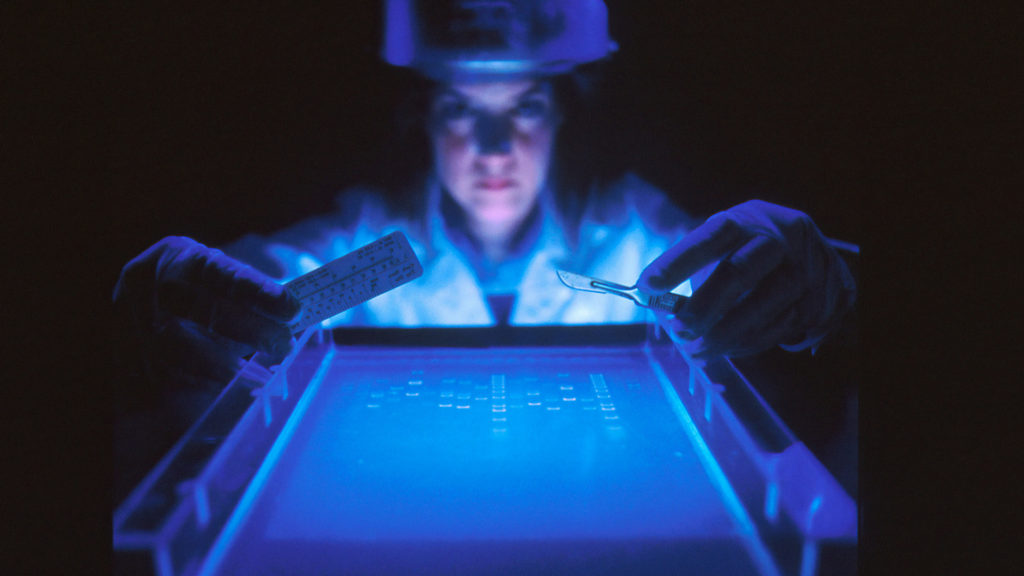SUBSTANCE ABUSE PREVENTION ISSUES SURVEY
2 MINUTES
WHAT SUBSTANCE ABUSE PREVENTION ISSUES SHOULD GEORGIANS ADVOCATE FOR?
Our collective voice can be stronger if we educate about substance abuse prevention issues that are important to all of us in Georgia. This survey seeks to determine if there is a consensus among preventionists about which issues are most important to them. Please complete and submit the survey by hitting the submit button below. Thank You!
:: SUBSTANCE ABUSE PREVENTION


Genetics and Epigenetics of Addiction Drug Facts (National Institute on Drug Abuse)
Genetics: The Blueprint of Health and Disease
Why do some people become addicted while others don’t? Family studies that include identical twins, fraternal twins, adoptees, and siblings suggest that as much as half of a person’s risk of becoming addicted to nicotine, alcohol, or other drugs depends on his or her genetic makeup. Finding the biological basis for this risk is an important avenue of research for scientists trying to solve the problem of drug addiction.
Identical twins are born with the same genetic footprint. Over time, as they are exposed to differences in their environments and make choices of their own, their DNA gets marked with information that can affect their behavior, their risk of addiction, and even their response to treatment. Some of these changes can be passed on to later generations. This is called epigenetics.
:: SUICIDE PREVENTION

Loneliness, Isolation, and Social Support Factors in Post-COVID-19 Mental Health
Leia Y. Saltzman, Tonya Cross Hansel, and Patrick S. Bordnick
Tulane University
Social support plays a key role in well-being, yet one of the major preventative efforts for reducing the spread of COVID-19 involves social distancing. During times of crisis, social support is emphasized as a coping mechanism. This requires many people to change their typical ways of connectedness and assumes that people have existing healthy relationships or access to technology. The purpose of this article was to explore the potential impact of COVID-19 on loneliness and well-being. Social support is an important consideration for understanding the impact of COVID-19 Psychological First Aid and Skills for Psychological Recovery, which are tools used to inform response methods to help people connect during isolation and are interventions that could be adapted to COVID-specific needs for what may be a prolonged isolation and post-isolation. Given the many unknowns of COVID-19, studies are needed to understand the larger behavioral health impact to ensure resources are available, current, and evidence informed. Future studies are also needed to understand how access to technology may help buffer loneliness and isolation and thus improve the social outcomes of the current pandemic.
:: ADVOCACY

Guide to Georgia’s Laws Related to Substance Abuse Prevention
Legislative Update
Status of Bills and Resolutions in the Georgia Senate and House as of June 1, 2021
:: YOUTH

Advice from a Fellow Advocate
July 2021
There’s a thrill in challenging people; it’s this irreplaceable excitement that swells and burns deep within. I got this feeling for the first time when I was in elementary school at a mere eight years old. Although I forget the details–who said what on the playground– I don’t forget the feeling of speaking my mind, of standing up for a young girl who fell off the swings. That was a few years before I had a word to describe my actions or this sensation.
This moment came and went, and when I was younger, I never gave it a second thought. I changed schools and was overwhelmed: lockers, new teachers, changing classes, making friends. Maybe it was destiny, or luck, or just probability, but it was that year that I became friends with someone who changed my life forever. In the sixth grade, they joined a group called Dover Youth to Youth.
Dover Youth to Youth is a youth empowerment program that focuses on drug and alcohol prevention. With vigor and might, they face the nicotine and alcohol industries, combating their manipulative practices. I went to a meeting with my friend. I felt fueled. Each thing that I learned was like adding a log onto a fire. I consumed any material that I could. After just one meeting I knew this was the perfect fit for me.
I was insatiable for this thrill, and I continued to find it with this organization for over eight years. I testified to the state legislature, I traveled presenting at national conferences, aided in the coordination of rallies, and even created numerous video and radio public service announcements (PSAs). Today, I am studying Public Health and continuing to fall in love with advocacy work. However, becoming an advocate can be daunting at first. There are so many paths and winding roads, it’s easy to fall into a rut. The journey of advocacy is unique for each traveler, but if you’re stepping onto this path yourself here are three things you should do in your practice:
- Rely on the friends you make along the way. Being an advocate is not a solo job, there are so many supportive people who will be working next to you. Take the time to get to know them. They will become your teammates during presentations, your confidantes when you’re struggling, and the best pizza buddies you’ll ever have. My best friends and second family throughout middle and high school were people in Youth to Youth. While I am hundreds of miles away from some of them, they are still the ones I call when I need a laugh or virtual hug.
- Laugh it off. This one took me way too long to learn (and honestly, I’m still learning it). When you make a mistake, don’t be down on yourself. I guarantee you, nobody noticed, or cared, and they are not talking about it now. Instead, take a second to recognize that things happen, take a deep breath, and laugh it out. The times that I was willing to laugh were the times I was best able to recover and continue presenting at my best.
- Take criticism as a positive. Whether it’s your advisor, fellow advocate, or opponent, you will get comments or suggestions on how you can improve– this isn’t a bad thing. This is an opportunity for you to grow and get better. At first, it may feel weird to try the same line 23 different ways, but I promise it will improve it.
This may be your most challenging and most rewarding journey. Whether you’re like me and you’ve been feeling a passion for helping others, for speaking out against wrongdoing, or this is completely foreign to you, these three things will help build and fuel your passion for advocacy.

Izabelle Wensley
Student Assistant of Clubs and Organizations at Johnson & Wales University
V4P Free Membership
To become a member with V4P is free. Membership includes exclusive webinars, networking opportunities, and much more. You can also be involved with V4P events via our social media accounts. Our social media handle on Instagram, Twitter, and Facebook is V4PGA. So, click that follow button and be a part of the V4PGA experience!

Upcoming Events
- JUL 21 | SP Stakeholder Call
- JUL 29 | OBHPFG Provider webinar - Substance Abuse Prevention
- AUG 9 | High in Plain Sight webinar with Officer Jermaine “Tall Cop” Galloway
- AUG 12 | V4P Member Call
- AUG 29 - SEP 3 | Georgia School of Addiction Studies Conference
- SEP | National Suicide Prevention Month
- SEP | 4th Quarterly Newsletter
- SEP 14 | SP Mental Health Trainer & Clinician Calls
Inspirational Thought
In some ways, the pandemic provided us with some down time and allowed us to disconnect from the hustle and bustle of life. But as things are reopening and people are reconvening, here are 5 tips to consider as you reenter “the world” post-pandemic.
Share with V4P
Our readers come to V4P to hear and learn what is happening in the world of suicide prevention and substance abuse prevention. We strive to gain as much information as possible to share with V4P members and others across the state because knowledge is power.
V4P wants to hear from you! We invite you to let us know if you are having any future advocacy events, whether it’s a webinar or virtual event that is open to the public that you would like to share. We call on our youth to send in articles and input for ways we can advocate for suicide prevention and substance abuse prevention. If you know of any Office of Behavioral Health Prevention and Federal Grants (OBHPFG) provider activity updates for the state of Georgia, please share them. We encourage all members to let us know if you have any accomplishments of individual members and member organizations that you would like to announce. Click the link below to share and we look forward to hearing from you

